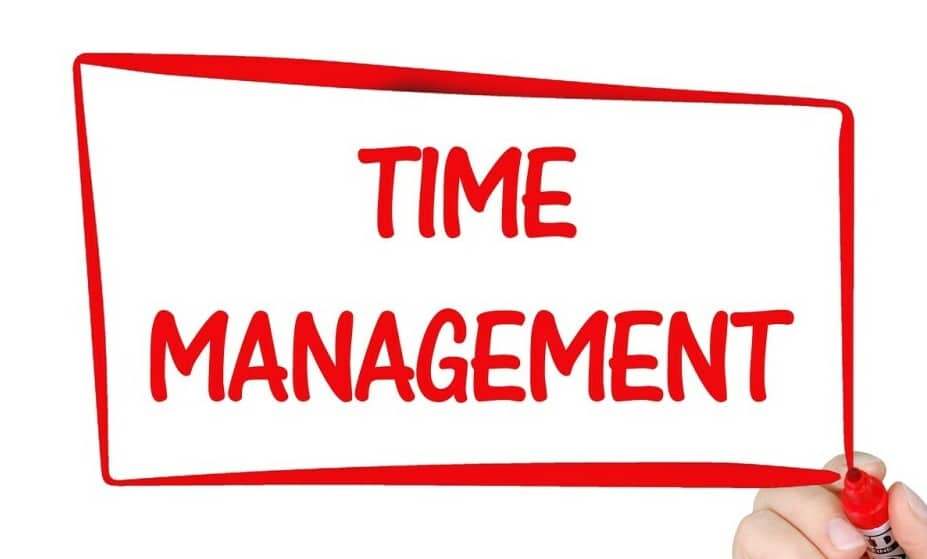Crafting a time management plan is about creating a flexible system that accommodates personal and professional needs, including health goals.
When you manage time efficiently, you’re not only maximizing productivity, but you’re also carving out moments for rest, relaxation, and activities that bring you joy.
Time management is a personal journey, so don’t worry if your first attempt is not perfect. View time management as a path to overall wellness and invest your time wisely. Choose to manage your time well for a fuller, healthier life. Start today!
Time management is not just about keeping a calendar or checking off tasks on a to-do list. It’s a critical skill that has profound implications for your health and happiness.
When you hear ‘time management,’ you might think of productivity, work, and schedules. However, there is more to it than that. It’s also about ensuring that you’re spending your time in ways that are aligned with your values and health.
Keeping this balance is the key to a thriving professional career as well as a healthy personal life.
Poor time management can lead to a chronically high-stress level, sleep deprivation, and an unhealthy lifestyle, which opens the door to a host of health issues. It’s like a domino effect; one aspect of your life can inadvertently impact another, and this is particularly true when it comes to how you manage your hours and days.
So, let us explore the proven benefits of tracking and allocating your time wisely, and some strategies to harness your schedule for better health outcomes.
Time Management and Its Impact on Health

You’re going to find out about the balancing act of managing a busy schedule against the need for good health.
Consider this: a well-organized day can free up time for exercise, a necessity for physical health, and provide regular breaks needed for mental recovery.
Now, before you think this is all work and no play, remember that part of managing your time wisely includes scheduling moments for laughter, leisure, and things that light up your life. It’s a simple concept that what gets scheduled gets done – including those rejuvenating moments that keep burnout at bay.
Let’s dive into how you manage a bustling schedule while ensuring your health doesn’t take a back seat.
How to Manage Time in a Busy Schedule?

So you’re trying to juggle multiple responsibilities, and it feels like there aren’t enough hours in the day. You’re going to find out about ordering your life in a way that keeps you from burning out.
The truth is, that having a busy schedule doesn’t automatically equate to productivity. Without clear priorities, you may end up feeling overwhelmed and counterproductive.
Here are 3 Steps to manage time in a busy schedule:-
Step 1:- Awareness
Know your peak productivity hours and guard them for your most important tasks. Avoid the temptation to multitask – it might seem effective, but often it leads to half-finished tasks and more stress.
Instead, focus on one task at a time and give it your all. This intentional approach not only boosts your efficiency but also your sense of accomplishment.
Step 2:- Delegate and let go
You can’t do everything yourself, nor should you. Identify tasks that you can delegate to others or that can be outsourced, freeing up your time for what truly matters.
Remember, time is a non-renewable resource; use it where you’ll get the biggest return on investment.
Step 3:- Use apps and tools
Use apps and tools for scheduling, reminders, and automating repetitive tasks. But beware of the black hole of notifications and endless scrolling.
Choose tools that serve you, not distract you. And don’t forget the power of a simple, old-school to-do list. There’s immense satisfaction in crossing off completed tasks, and it keeps your daily goals in clear sight.
As we transition to the next section, keep in mind that mastering your busy schedule is more than just a good plan and the right tools. It’s a commitment to continuously refine your strategy and adapt to changes — because, in reality, no two days are ever the same.
How to Manage Time for Personal and Professional Life?

You’re going to find out about juggling the demands of your personal and professional life using time management. It’s about recognizing where your time goes and steering it in the right direction.
In my opinion, our lives are a blend of various roles and responsibilities, and without a plan, we can end up feeling overwhelmed. That’s where time management jumps in to save the day.
Take a moment and think about how you spend your average day. Is it skewed more towards work or personal life? Charting it out can be an eye-opener. Now, let’s get a plan into action.
Identifying common time-wasters in both spheres is your starting block. Be honest about the social media rabbit holes, the unnecessary meetings, or the procrastination pitfalls.
Create a time management blueprint that fits your lifestyle. Maybe a rigid schedule works for you, or perhaps you’re more a fan of the ‘big rocks first’ philosophy. Choose something that resonates with you.
Finally, it’s not about packing more into your day; it’s optimizing for a healthier, happier life. Remember, managing time is just part of the journey – making sure it serves your health is the true destination.
Conclusion
You’re now well aware of the undeniable link between time management and a healthier, happier life. But how do you go about integrating these skills into your routine?
First off, it’s about knowing the tools and techniques that can help you keep track of your tasks and goals. Choose something that resonates with you.
Crafting a time management plan isn’t about a rigid schedule; it’s about creating a flexible system that accommodates your personal and professional needs – including those important health goals.
Remember, poor time management can contribute to stress levels. Your first attempt doesn’t need to be your last. You can always adjust your approach down the line.
Thanks for reading! Choose to manage your time well, and you’ll be choosing a fuller, healthier life. And if you’re looking to make a change, why not start today?


Thanks for your article on time management with a focus on how it can positively impact on your health. It is true that stress is one of the biggest factors in bad health and poor time management can mean more stress. Plus there is the added benefit of having more time to do the things you love and that brings happiness. This has a positive impact on your health. I personally, like to get in and tackle the big jobs first. Once I get these out of the way, I feel a great sense of relief.
which positively impacts my mental health.